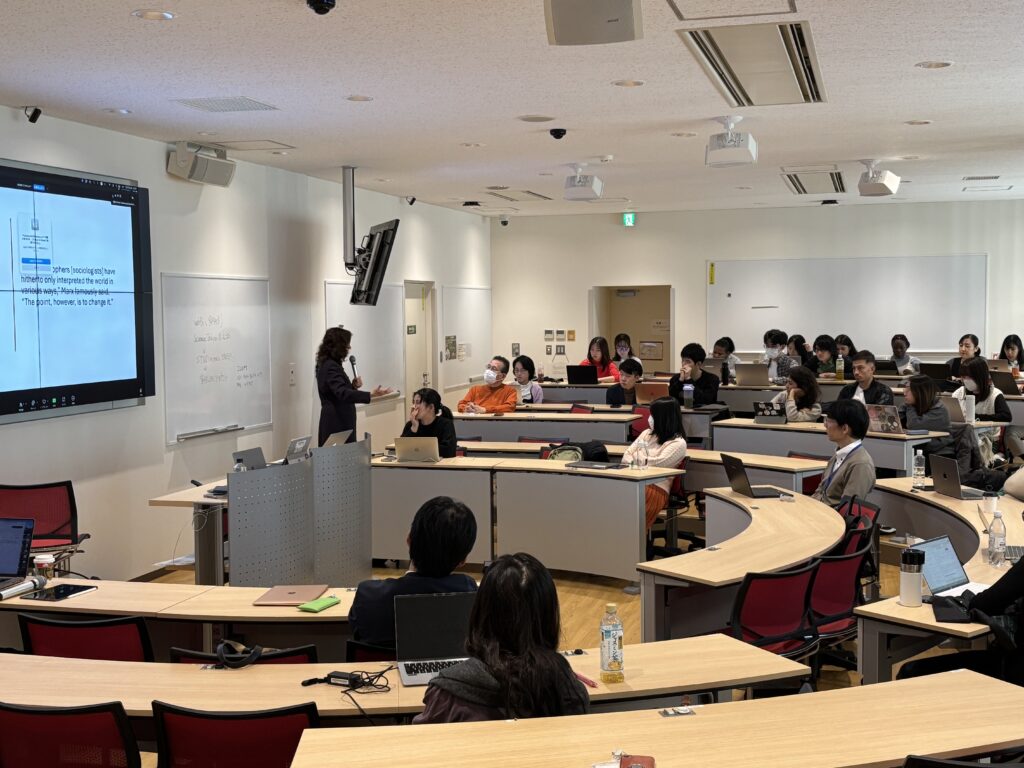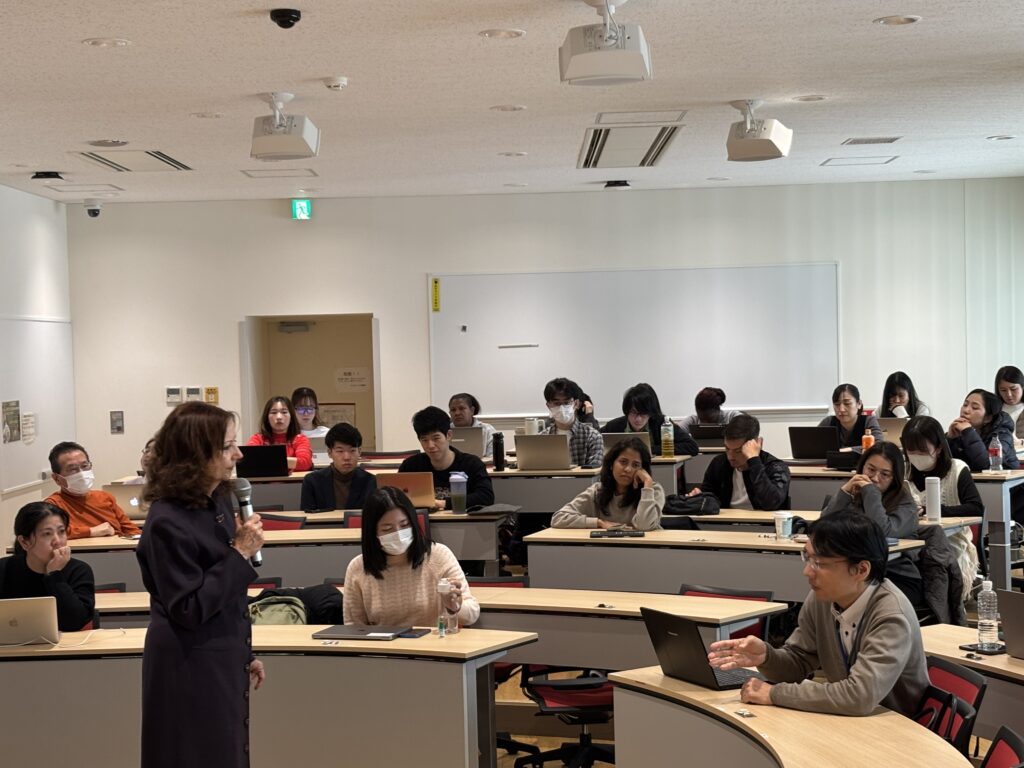第6回ウェルビーイングラウンジ「社会学と公衆衛生学」
- TOP
- ー
- イベント・セミナー開催情報
- ー
- 第6回ウェルビーイングラウンジ「社会学と公衆衛生学」

アクティブラーニング教室(東京科学大学 湯島キャンパスM&D タワー4階)
2024 年12月4日 10:00
English Follows
第6回目となるウェルビーイングラウンジは、アメリカのジョンズホプキンス公衆衛生大学院のCarol Underwood教授をお招きしました。
Underwood教授は、UNICEFなどの国際機関から依頼を受けて、長年にわたり中東、アフリカ、旧ソ連構成諸国などで、コミュニティのウェルビーイングにおける社会構造の役割について研究し、社会の不平等を是正する具体的な政策を提案していらっしゃる先生です。

冒頭Underwood教授より「社会学理論と公衆衛生:公共性の再考」と題した講演が行われました。人は絶えず他者との関係において存在しており、歴史や社会状況の変化といった社会の影響を受ける社会的存在であることが強調されました。そして、ドゥルケーム、ウェーバー、マルクス、グラムシ、ブルドゥーといった20世紀の社会学者が提唱した概念や理論を引き合いに、病気、孤立・孤独、貧困を、個人的な現象としてではなく、社会構造の観点から理解するという視点が紹介されました。さらに、グンダー・フランクの従属理論やウォーラステインの世界システム論が紹介され、世界で広がり続ける不平等(生存と繁栄に不可欠な資源の不均等な分配)も、個人的な体験としてではなく、植民地主義という歴史と社会の変化から理解するという視点が紹介されました。貧困など社会が直面する公衆衛生学的課題は、政策という「選択」の結果生まれたものであり、すべての人が健康とウェルビーイングを手にする社会の実現には、私たち一人一人が社会正義の意識を高め、政策に反映させるよう働きかけることが重要であることが強調されました。
Underwood教授は、40名を超える医学生・大学院生・教員からの質疑応答などのディスカッションに快く応じてくださりました。

マルクス理論と構築主義との関係や、現代社会における有用性、グローバル政府やグローバル課税の必要性、社会構造の転換や資源の配分の機会としてみる気候変動、などについて意見交換が行われました。社会を変えるのは難しいという声もあがりましたが、Underwood教授は「目標に到達できていないことをできないとは言わない、公平な社会を作るために努力し続けましょう」と参加者を励まし、大いに盛り上がりました。

We were honored to have Professor Carol Underwood from Johns Hopkins School of Public Health in the U.S. for the 6th Wellbeing Lounge. Professor Underwood has been working many years in the Middle East, Africa, and former Soviet Union countries at the request of international organizations such as the UNICEF, to research about the role of social structure in community wellbeing and propose concrete policies to correct social inequalities.
Professor Underwood opened the session with a lecture titled “Sociological Theory and Public Health: Bringing the Public Back”. She emphasized that we are social beings, and we exist in relationship with others and are subject to social influences such as history and changing social conditions. Then, she introduced the perspective of understanding illness, isolation and loneliness, and poverty not as individual phenomena but from the perspective of social structure, referring to concepts and theories proposed by 20th century sociologists such as Durkheim, Weber, Marx, Gramsci, and Bourdieu. She also introduced the perspective of understanding the world’s ever-widening inequality (unequal distribution of resources essential for survival and prosperity) not as a personal experience, but from the historical and social change of colonialism, referring to Gunder Frank’s dependency theory and Wallerstein’s world systems theory. She emphasized that the public health challenges many societies are facing today, such as poverty, are the result of “choices” in the form of policies, and that it is important for each of us to raise our awareness of social justice and work to ensure that it is reflected in policies so that we achieve the public health goal – creation of a society where all attain health and wellbeing.

Professor Underwood was gracious enough to participate in the discussion, including a Q&A session with over 40 medical and graduate students and faculty members. They exchanged opinions on the relationship between Marxian theory and constructivism, its usefulness in modern society, the need for global government and global taxation, climate change as an opportunity to transform social structure and allocate resources, and more. Although some participants said that it is difficult to change society, Professor Underwood encouraged the participants to “we cannot say we cannot when we have not reached our goals, we should strive create an equitable society,” and the event was very much enjoyed by all.
